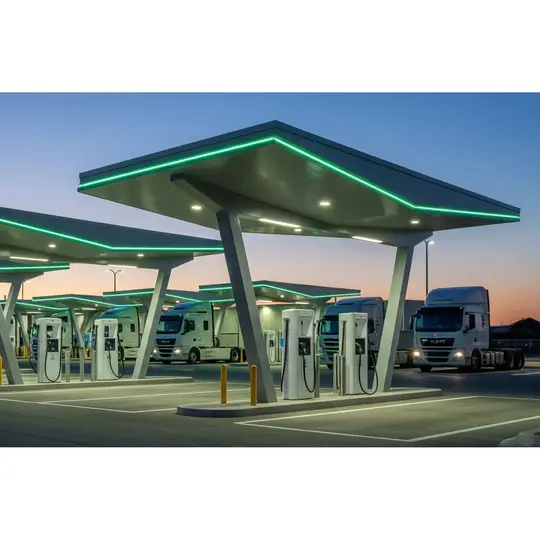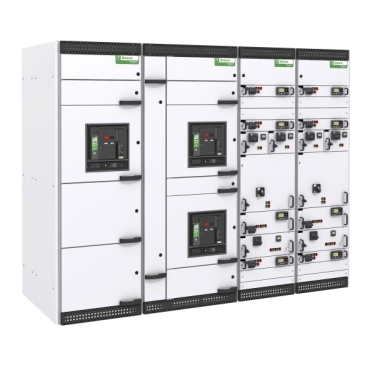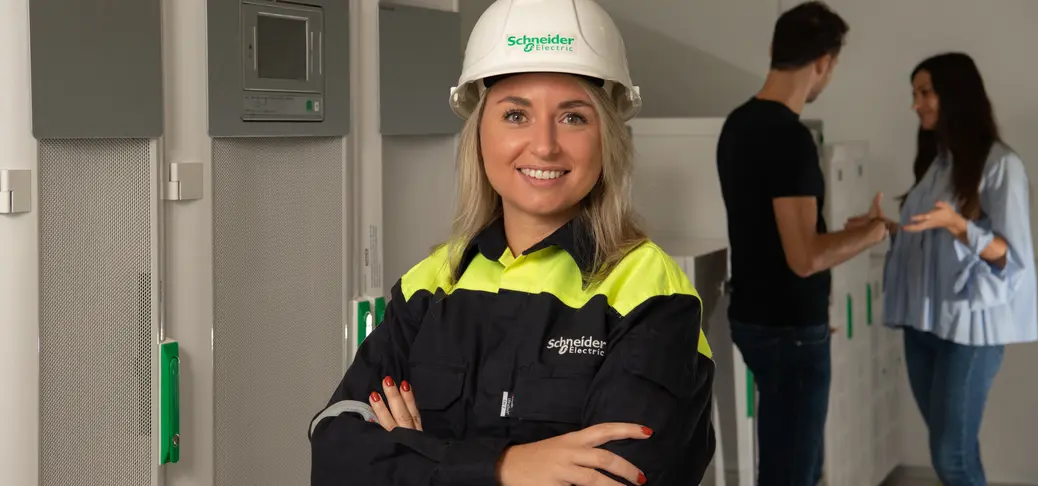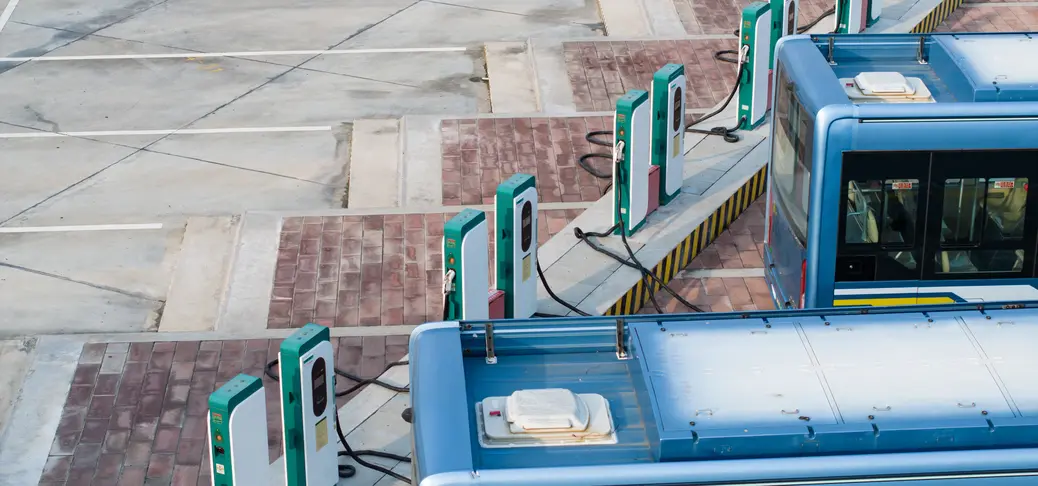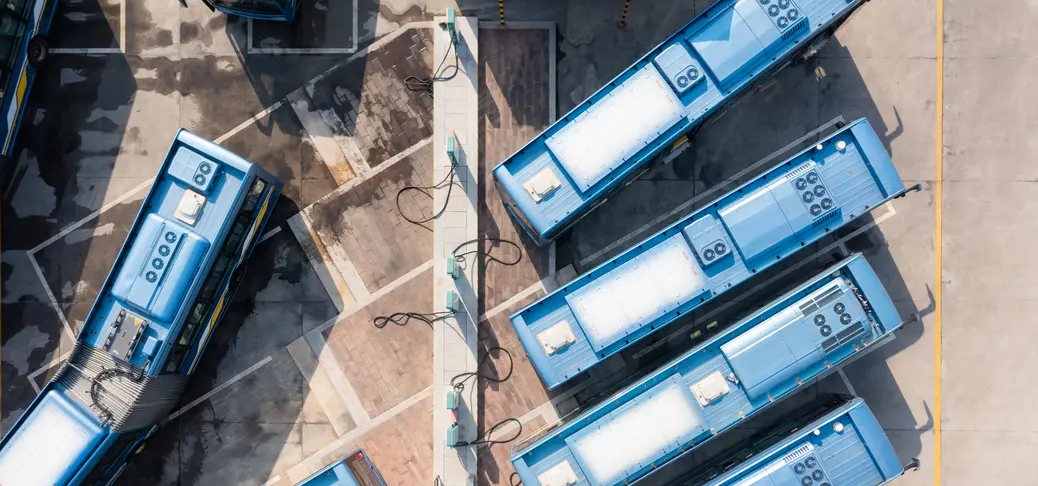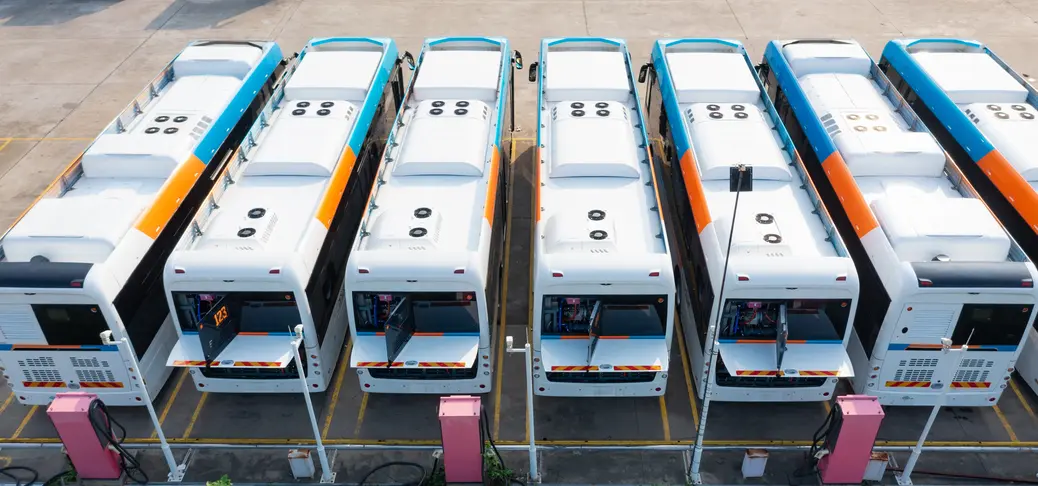EV fast charging hubs of the future
Fast charging infrastructure: Solutions and strategies
The future of EV charging is here. Download our white paper for a comprehensive guide to deployment.

Why EV fast charging is important to your business
As more businesses electrify their fleets, it’s key to make sure the transition to electric vehicles is smooth as well as profitable. To support this evolution towards faster, higher-powered charging, you need a partner that can deliver solutions that are optimised, efficient and scalable.
Unlock peak performance for your EV fast charging hub
Dynamic energy and load management system
End-to-end digital solutions that are scalable and provide a seamless user experience for end route and depots.
EV fleet charging electrical infrastructure
Solutions that are standardised for quicker time to market while still being customisable and scalable.
Consulting and proactive asset management
Consulting and proactive asset management that maximises uptime with data-driven maintenance strategies.

Three things to know about DELMS
Discover how our Dynamic Energy Load Management System (DELMS) helps optimise EV fleet charging. Reduce costs, avoid grid overloads and integrate renewables — all with smart, real-time energy management.
Explore our latest insights on fast charging hubs of the future
What are the key drivers for the growing demand in EV fleet charging?
The surging demand for EV fleet charging is fueled by several critical factors. We're seeing significant drops in electric vehicle (EV) battery costs, making EVs more accessible for various operations. Simultaneously, new decarbonisation targets for fleets and commercial lorries are pushing for greener transportation. Original Equipment Manufacturers (OEMs) are demonstrating strong commitment to EV growth, with projections of a 3x increase in EVs from 2020. Furthermore, governments globally are implementing stringent regulations and incentives, accelerating the adoption of electric vehicles, especially for demanding applications such as last-mile delivery and urban transportation. These combined forces underscore the urgent need for robust EV charging infrastructure that can support this rapid shift towards fleet electrification.
How do Schneider Electric's solutions address the unique needs of fleet electrification, including ultra-fast and depot charging?
Fast charging infrastructure is paramount for optimising eBus and eLorry operations, enabling rapid turnaround times crucial for daily schedules and efficient use of downtime. It also facilitates in-transit charging for longer routes, enhancing operational flexibility. Schneider Electric specialises in comprehensive fleet charging solutions that are optimised, efficient and highly scalable.
Our offerings encompass complete electrical infrastructure solutions to simplify supply chain complexity, whether through individual power components or scalable modular solutions. This includes medium and low-voltage switchgear, transformers and AC/DC chargers tailored for depot charging and ultra-fast charging needs. As well as hardware, Schneider Electric provides an end-to-end digital layer through our Dynamic Energy Load Management System (DELMS). This solution optimises the charge process, ensures electrical reliability, enhances operational efficiency, maintains power quality compliance, and delivers superior asset performance management. This integrated digital layer, deployable on the edge, cloud, or both, can significantly reduce electrical infrastructure CapEx by up to 30% and optimise OpEx, ultimately improving uptime and customer satisfaction. A prime example is our work at the Brookville Smart Energy Bus Depot, which achieved 62% reduced lifetime emissions and 99.9% resilience for 44 eBuses through an integrated load and power management system with microgrid operation for EV infrastructure.


